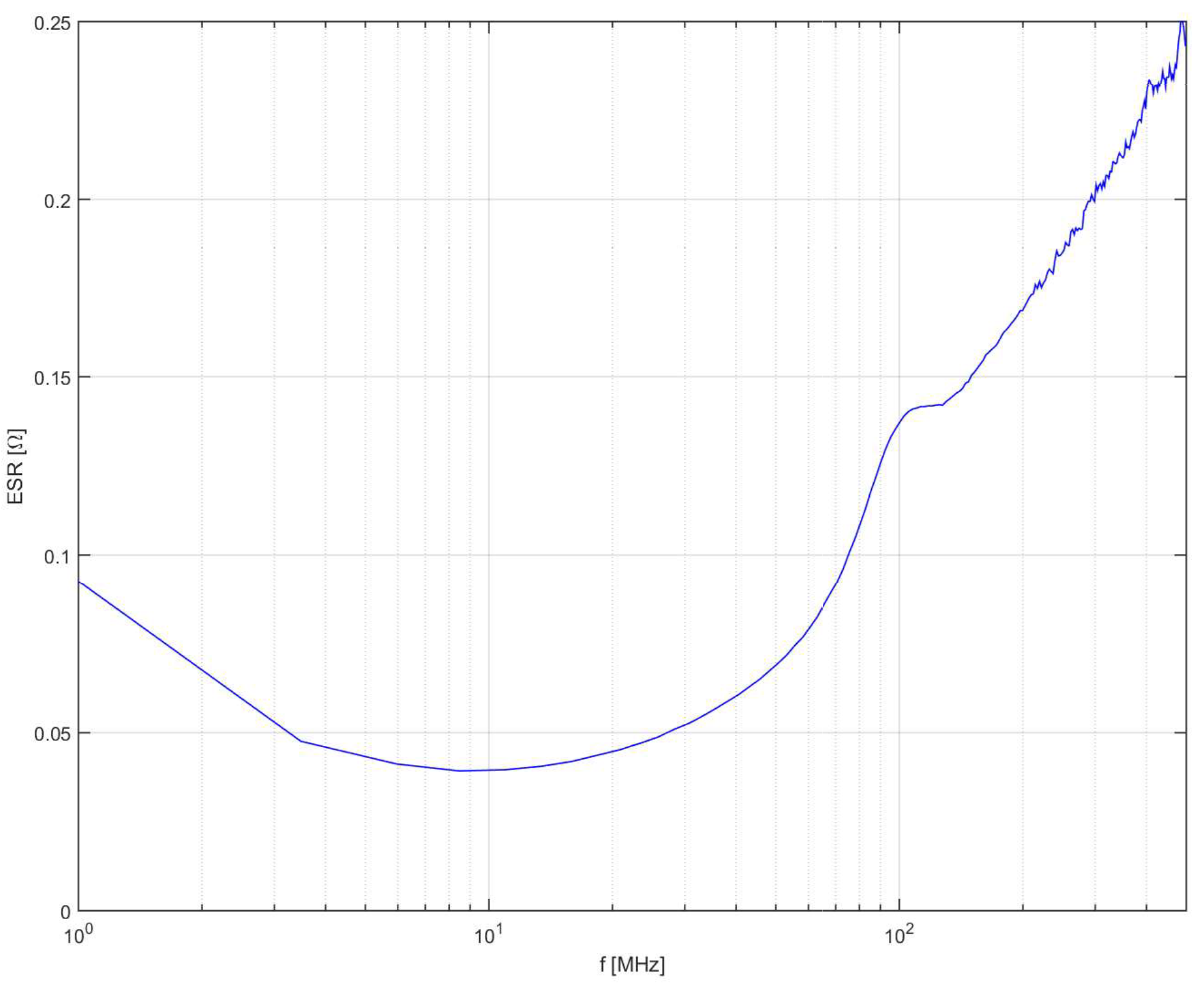EMC Question of the Week: November 30, 2020

Measured ESR of a 47-nF X7R MLCC as described in CVEL-17-069
Above 30 MHz, the loss in a multi-layer ceramic decoupling capacitor is primarily due to
- conductor loss
- dielectric loss
- radiation loss
- eddy currents
Answer
The best answer is "a". While the low-frequency equivalent series resistance (ESR) of a multi-layer ceramic capacitor is primarily due to the dielectric losses; the high-frequency losses are dominated by the resistance of the conductors. Above 30 MHz, the current in the connecting terminals and the capacitor electrodes is confined to the outer surface of the conductor by the skin effect. Furthermore, the current at these frequencies is largely confined to the lower plates in a multi-layer stackup. As a result, the resistance of the conductors is emphasized and the dielectric losses are minimized.
The ESR of multi-layer ceramic capacitors typically decreases with frequency at lower frequencies, where the dielectric loss dominates, but increases proportional to the square root of the frequency at higher frequencies where the conductor losses dominate. This is observed in the plot on the right, which shows the measured ESR of a 47-nF X7R multi-layer ceramic capacitor.
Design engineers are rarely interested in the ESR of capacitors at very high frequencies or very low frequencies. At very low frequencies, the capacitive reactance limits the current flowing through the capacitor and the ESR has little impact. At frequencies above 10 MHz, the inductive reactance dominates and again the ESR has little impact. ESR tends to be important at mid-range frequencies where it is comparable-to or greater than the combined capacitive and inductive reactance.
High ESR can be undesirable in applications where it limits the bandwidth of the capacitor or produces unacceptable levels of heat. On the other hand, high ESR can be an advantage in applications where it is necessary to damp unwanted resonances.
Have a comment or question regarding this solution? We'd like to hear from you. Email us at
